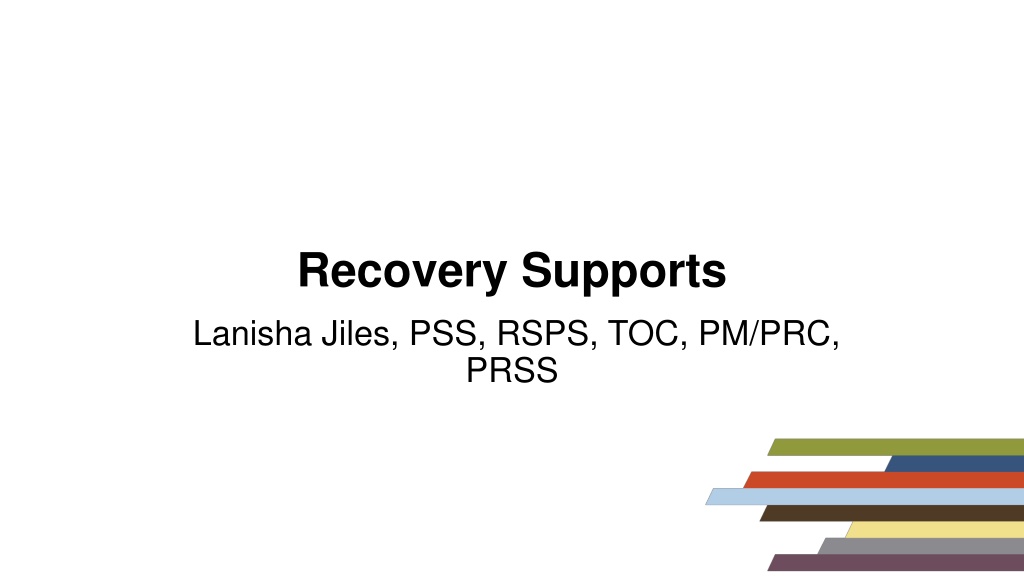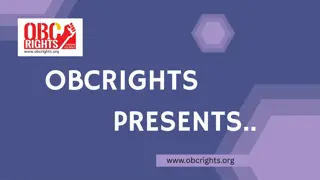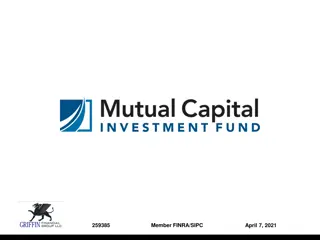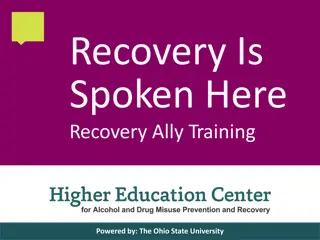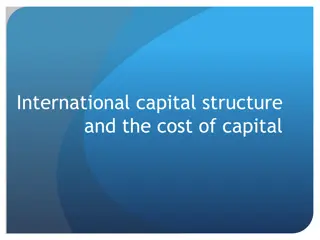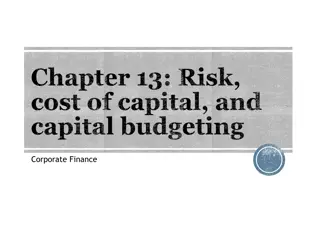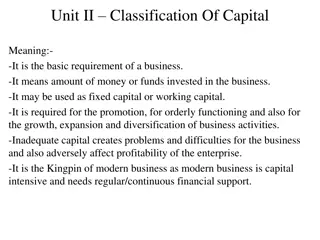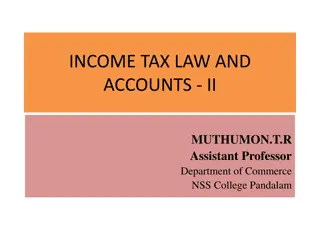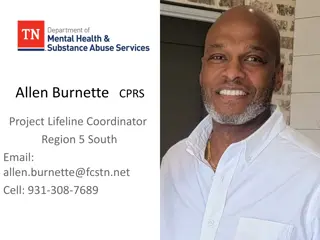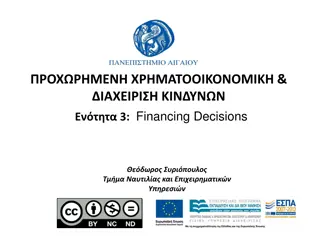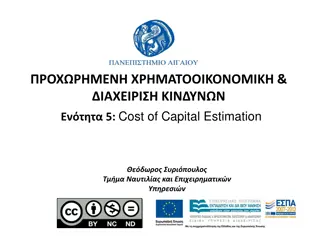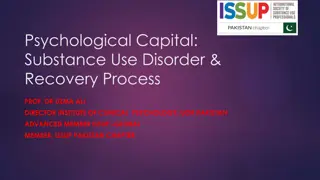Understanding Recovery Support Services and Building Recovery Capital
Recovery Support Services (RSS) aim to help individuals bridge gaps and maintain long-term recovery by enhancing their Recovery Capital. These services provide resources in various life domains such as employment, housing, social support, and more. Recovery Coaches offer support at different stages of change, focusing on holistic wellness. Peer Recovery Support Specialists (PRSS) employ effective approaches like Community Integration and Person-Centered Planning. Recovery Capital consists of human, social, and physical resources essential for the recovery process. Assessing peer recovery capital with tools like the Assessment of Recovery Capital (ARC) can aid in building a strong foundation for sustained recovery.
Download Presentation

Please find below an Image/Link to download the presentation.
The content on the website is provided AS IS for your information and personal use only. It may not be sold, licensed, or shared on other websites without obtaining consent from the author. Download presentation by click this link. If you encounter any issues during the download, it is possible that the publisher has removed the file from their server.
E N D
Presentation Transcript
Recovery Supports Lanisha Jiles, PSS, RSPS, TOC, PM/PRC, PRSS
Objectives Promising Practices What is Recovery Capital? Building Recovery Capital
What Are Recovery Support Services? Recovery Support Services (RSS) are designed to bridge existing gaps and help individuals enter into and stay engaged in long-term recovery RSS aim to support individuals with increasing their Recovery Capital and in turn their opportunity for sustained recovery in the community In addition to addressing substance use, RSS provide resources, supports and community connections to holistically address all domains of an individual s life: employment, housing, social support, education, parenting, spirituality, legalities, leisure and recreation.
RSS Recovery Coaches Provide Recovery Support Services (RSS) before, during, after, and at times in lieu of treatment meet people at whatever stage of change they are in and focus on whole health and wellness out in the community of one s choosing do not provide clinical services but instead provide RSS that can supplement and enhance clinical services support individuals across many pathways to recovery Use "lived experience" to support individual in recovery
Promising Practices Effective approaches used by Peer Recovery Support Specialist (PRSS) include: Initial Engagement Peer Culture Person-Centered Planning Community Integration Continuing Support
What is Recovery Capital? Recovery Capital are the internal and external resources an individual possess when entering recovery process consisting of human, social, and physical capital. Human Capital: Internal capacities and skills an individual possess,( i.e. Time management, education, problem-solving skills). Social Capital: Supportive people in an individual's social network, (i.e. Church members, peers at self- help groups, employers). Physical Capital: Tangible resources used in recovery process, (i.e. Transportation, housing, medical insurance)
Building Recovery Capital Assess the peer recovery capital by utilizing the Assessment of Recovery Capital (ARC) tool and strength-based assessment. Create a Recovery Plan which builds recovery capital. Re-assess recovery capital every 90-days Celebrate accomplishments/achievements with peer. Always use strength-based language
